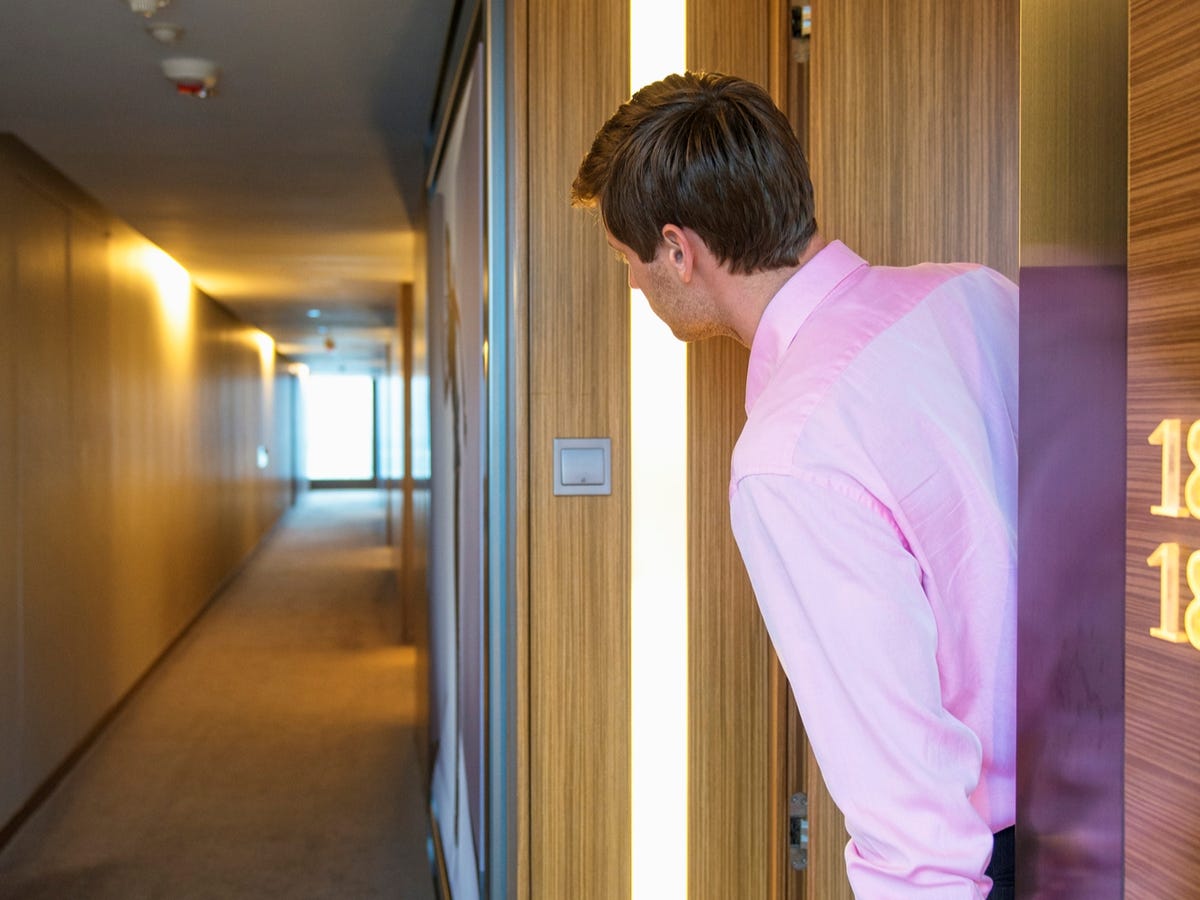This hotel is using technology in a truly creepy way (but some will like it)

Can technology go too far in disturbing your peace?
Getty ImagesThe trend is inevitable.
And, as with so many trends, there’s pain too.
Business owners have embraced technology as the elixir that offers speed and money-saving. Which has led to their permissiveness of its invasiveness running rampant.
It’s not surveillance, many insist. It’s security.
Meanwhile, their customers are left wondering who’s guarding the guardians.
I wafted to this subject because of a tweet by a writer and drag queen. Joe Wadlington seemed excited that there was a new boutique hotel in the Castro district of San Francisco.
But then he perused the rules perpetrated by the hotel’s management company, Kasa. It insists on quiet hours between 9 pm and 8 am. One person’s quiet is another person’s having a lovely time.
So one section of Kasa’s rules offers: “Kasa apartments are proactively monitored for compliance with this noise policy.”
Few enjoy the concept of proactive monitoring. It smacks of proactive snooping.
Yet Kasa insists: “Decibel sensors notify the Company of sounds in the Kasa that exceed 75 decibels (dB). You hereby consent to the use of sound level monitoring.”
I can hear you grunting at a minimum of 72 decibels. These people have sensors to monitor your every sound level? Isn’t that excessively, well, personal?
And wait, how loud is 75 decibels? The University of Michigan tells me normal human conversation scores around 60. Office noise is a 70. And an average radio or vacuum cleaner scores a 75.
You may, like me, find all this perplexing. Could it be that if you play the radio after 9 pm you’ll get a warning notice? And if you do it twice, you get a $500 fine or be kicked out of the hotel? (Them’s Kasa’s rules, you see.)
For those who may not have visited the Castro district, it’s the home of the gay community and is a vibrant and sometimes loud place to be. The Bold Italic pointed out that if you claim your hotel is “community powered” — as the Hotel Castro does — its “current guest policies sit as an odious dichotomy to that very sentiment.”
I fear some, though, may feel torn about the general principle.
For many people, one of the more painful aspects of hotel existence is the prospect of thin walls and/or noisy people in adjacent hotel rooms.
How many haven’t, at least once in their lives, called the front desk to complain about excessive noise coming from another guest — or, indeed, guests?
If noise is being automatically monitored by technology, is this necessarily a bad thing?
Then again, can technology really assess the true impact of noise? Is this better left to human judgment? And what if the people next door rather like the noise and even knock on their neighbor’s door to see if they can partake?
Of course, many hotels are tending toward resisting human intervention because they’re resisting hiring humans. Indeed, as far as I can judge, the Hotel Castro has a virtual front desk.
Ergo, once you’re in the grip of technological oversight, you’ll find it in places you don’t expect.
Just as guests in Airbnbs these days have to ask whether the homeowner has an active camera system installed, so perhaps hotel guests may begin to ask questions about how they might be surveilled too.
Sometimes, it’s hard to get a good night’s sleep, isn’t it?
Or, as Wadlington put it: “I’m….so creeped out.”
READ MORE HERE
